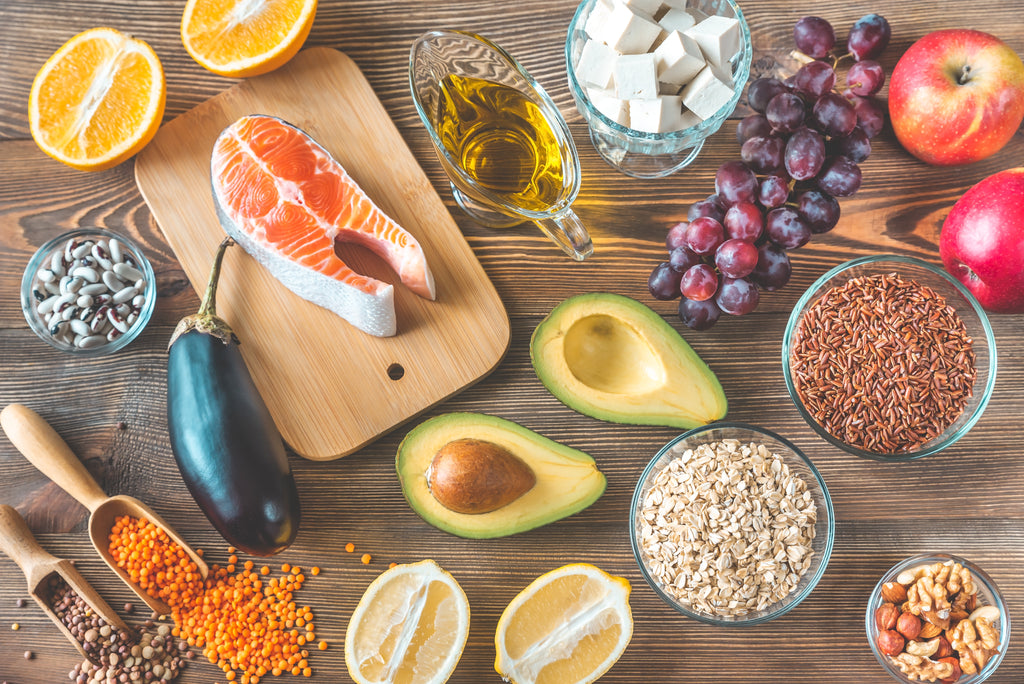The cholesterol-microbiome link
What does your gut bacteria have to do with cholesterol? It turns out more than you might think! Whilst the digestive and cardiovascular systems are 2 very different systems with very different jobs, they are connected via what has been referred to as the ‘gut-heart axis’. Taking care of your gut microbiome may not only help maintain healthy cholesterol in healthy individuals, but also support healthy function of the cardiovascular system.
The word ‘cholesterol’ evokes images of high fat diets and clogged arteries. Though, despite its long-held reputation as the villain, cholesterol remains an essential component of health. So much so, we can’t live without it!
As new research has come to light, our understanding of what affects cholesterol in the body has turned on its head. No longer is the humble fried egg to blame for all our cholesterol woes, but instead a complex interaction between genetics, diet, lifestyle and…you guessed it, the microbiome.
If you have been chasing a healthy cholesterol reading, it may pay to turn your attention to your gut. But before we can learn to manage our cholesterol, we need to understand it.
Let’s break it down…
Understanding cholesterol: The good and the bad
Cholesterol is a waxy, fat-like substance found in every human cell which performs many important functions, including:
- Cell membrane formation
- Modulator of cell signalling and nerve conduction
- Precursor to hormones, bile acids (BA) and Vitamin D[1]
When it comes to cardiovascular system function, cholesterol itself is not the issue, but rather it’s transporters (AKA lipoproteins) and where they are transporting the cholesterol to. These lipoproteins can be divided into different types, the most relevant of which include:
- The good (High Density Lipoprotein Cholesterol) – These deliver free cholesterol from our tissues to the liver for elimination via the bowels
- The bad (Low Density Lipoprotein Cholesterol) – These deliver cholesterol from the liver to the tissues. Small amounts are necessary, however excessive amounts can build up in the blood vessels and contribute towards atherosclerotic plaques.[2]
How does the gut microbiome affect cholesterol?
Our gut microbiome has various ways to help keep our cholesterol levels in check. Some recently discovered processes include:
- Coprostanol Conversion – Certain strains of bacteria have demonstrated the ability to convert cholesterol into a substance known as coprostanol. Due to its structure, coprostanol is poorly absorbed across the gut lining and easily excreted via the bowels, making it an effective cholesterol elimination route. High amounts of coprostanol found in faeces is associated with healthy cholesterol, leading researchers to believe that cholesterol-coprostanol converting bacteria play an important role the maintenance of healthy cholesterol in healthy people.
- Bile Acid Deconjugation – Bile acids are synthesised by cholesterol and form an essential part of fat digestion. Whilst most bile acids are reabsorbed and recycled back to the liver, approximately 5% are metabolised by gut microbes, making it another important excretion route for cholesterol
- Cholesterol entrapment – Certain bacterial strains can act like vacuums, sucking up cholesterol in the gut to form part of their own membranes. This process is thought to offer a protective benefit to the bacteria.
Although the above processes are strain-specific, they have been found in many probiotic bacteria strains, including those belonging to the genera Lactobacillus and Bifidobacterium. [1]
Did you know?
Approximately 80% of your body’s cholesterol is produced by your liver. The remaining 20% comes from dietary sources.
Diet matters: The diet-microbiome-cholesterol link
One of the most effective ways of supporting a healthy microbiome and healthy cholesterol is through a healthy diet.

So how can we achieve this balance? The latest research suggests the following:
- Fats – Eating less total fat, with an increased ratio of unsaturated fats (e.g., salmon and olive oil) to saturated fats (e.g., animal produce), has shown to increase numbers of beneficial gut bacteria and help support healthy cholesterol
- Fibre – Fibrous foods are not only a fantastic food for us, but also our microbes. Not only do they help to slow absorption of sugar, fats and cholesterol across the gut lining, but they also encourage the growth and activity of beneficial microbes. Microbe-loving, fibre-rich, cholesterol-lowering foods include wholegrains (e.g., oats) and various fruits and veggies.
- Plant polyphenols – These are plant molecules known for their antioxidant properties and can assist in cholesterol metabolism and excretion. Think green tea, bright coloured fruits and veg and red wine (just a little!).
- Probiotics– good bacteria can be found in fermented foods such as yoghurt and can also be supplemented with products such as probiotics. Both have shown benefits in supporting the gut microbial balance and healthy cholesterol. Beneficial species include Bifidobacterium longum, infantis and B. breve as well as Lactobacillus plantarum.
The growing evidence supporting the link between the gut microbiome and cholesterol is yet another reason why taking care of your microbiome, matters!
Life-Space Team
If seeking specific advice on supporting your stress resilience, talk to your health professional.
__________
[1] Kriaa A, Bourgin M, Mkaouar H, Jablaoui A, Akermi N, Soussou S, Maguin E, Rhimi M. Microbial reduction of cholesterol to coprostanol: an old concept and new insights. Catalysts. 2019 Feb;9(2):167.
[2] Elshourbagy NA, Meyers HV, Abdel-Meguid SS. Cholesterol: the good, the bad, and the ugly-therapeutic targets for the treatment of dyslipidemia. Medical Principles and Practice. 2014;23(2):99-111.
[3] Singh RK, Chang HW, Yan DI, Lee KM, Ucmak D, Wong K, Abrouk M, Farahnik B, Nakamura M, Zhu TH, Bhutani T. Influence of diet on the gut microbiome and implications for human health. Journal of translational medicine. 2017 Dec;15(1):1-7.
[4] Rajkumar H, Mahmood N, Kumar M, Varikuti SR, Challa HR, Myakala SP. Effect of probiotic (VSL# 3) and omega-3 on lipid profile, insulin sensitivity, inflammatory markers, and gut colonization in overweight adults: a randomized, controlled trial. Mediators of inflammation. 2014 Oct;2014.
[5] Chambers KF, Day PE, Aboufarrag HT, Kroon PA. Polyphenol effects on cholesterol metabolism via bile acid biosynthesis, CYP7A1: a review. Nutrients. 2019 Nov;11(11):2588.